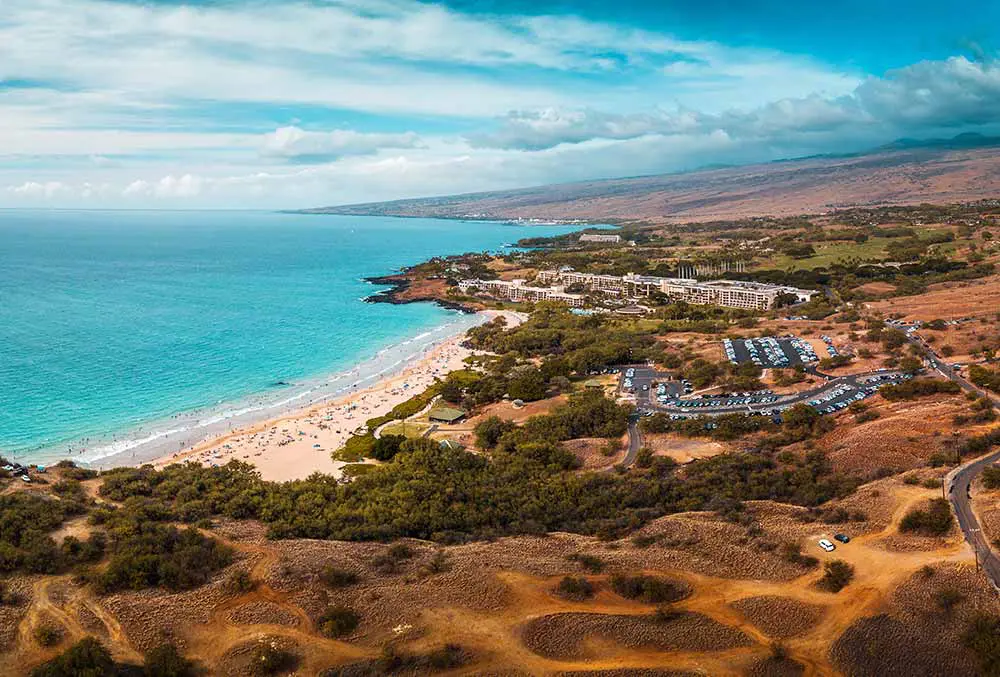Feb 26, 2021
13 Things To Know Before You Move To Hawaiʻi, the Big Island

Aloha and congratulations! You’ve made the decision to make Hawai‘i Island your home. Our island is a uniquely wonderful place to live, and we hope you enjoy your new life in Hawai‘i. What do you need to know before you go? We’re happy to share some basic tips for moving to Hawai‘i Island, and encourage you to take the time to explore, discover and learn about the Big Island and all it has to offer.
First things first.
- There’s a saying, “Don’t try to change Hawai‘i. Let Hawai‘i change you.” When you move to a new place, it’s important to remember why you came. If you arrive with a suitcase full of expectations and ideas about turning your new home into a replica of your last one, you’re probably going to be disappointed. Over the years, the folks who come here and happily stay are those who understand that they are the ones who need to adapt to their new home, not the other way around. If you do, chances are very good that Hawai‘i will welcome you with open arms and invite you to a lifetime of wonderful experiences.
A few words
- Hawaiʻi. Even though Hawaiʻi has been part of the U.S. since 1959, you may have to explain to friends that the state is actually made up of eight main islands, Hawai‘i, Maui, O‘ahu, Kauaʻi, Lānaʻi, Molokai, Niʻihau and Kahoʻolawe. And, although the “Big Island” is in fact the biggest size-wise, it is small in terms of population, business, tourism and traffic (lucky for us!). The busy city of Honolulu is located on the island of Oʻahu.
- Hawaiian. Another issue that can be confusing for newcomers is the word “Hawaiian.” Unlike other state residents, for example “Texan,” “Floridian,” etc., Hawaiians are specifically people born into Hawaiian ancestry. Many Hawaiʻi residents have no Hawaiian blood, and many Hawaiians live outside the state. It’s an important distinction that needs to be treated with respect.
- What is a haole? When you first arrive, you are a malihini (newcomer). If you are a Caucasian, you can be considered a “haole,” which means stranger or foreigner. It’s a slang term that could be somewhat derogatory depending on the context, but in general it’s just a descriptive word, not an insult.
- Kamaʻāina. After a time you’ll be considered kamaʻāina (long-time resident). Kamaʻāina often receive special rates in hotels, restaurants and activities, as a way for the visitor industry to give back. A Hawai’i drivers license is usually required, so put this on your to-do list early!
You can learn more about the beautiful Hawaiian language here.
- It’s not always about the money. Hawaiʻi is expensive. There is no question about it. But to those who choose to live here, it’s worth so much more than the extra cost. Yes, it’s a shock at first—at the grocery store, the gas station, restaurants—but hang in there; you’ll get used to it. And remember what you are NOT having to pay for here, like heating bills, snow tires, and winter clothes.
- Fact Check. You may have heard rumors since the start of the pandemic, that local residents don’t want tourists to come back, and they will never accept haoles (strangers, usually Caucasians). This is only true for some people, just like where you live. Almost every region has its “born heres” and “come heres” and newcomers take time to fit in. Overall, Hawaiʻi’s people are warm, generous, unprejudiced and family-minded. When treated with respect, they will return the same to you. And when you make a friend here, you have a friend for life.
- Slow down. OK we’ll just say it. Things move slower here. Everything takes more time than expected—from Amazon orders to restaurant service and returned calls or emails. Like the sun and the ocean waves, it’s kind of natural here, and the most comfortable way to handle is with patience, understanding (and a little pre-planning when you need it).
- Living vs. vacationing. Many Hawaiʻi homeowners are longtime repeat visitors, and, sometimes they are surprised when day-to-day life is so different from their wonderful vacation memories. Even in the upscale luxury market, it’s important to understand the role of resident versus guest. As a hotel guest, vacation rental customer, or timeshare owner, you pay for service from folks who live here, and naturally expect a level of consideration.
When you become a resident yourself, you take on a new, shared responsibility to care for your property, your family, and the island itself. Taking the time to make friendships before you move, to learn as much as you can in advance, and to right away jump in to projects that give back, the sooner you’ll feel more part of community.
Why NOT move to Hawaiʻi Island?
- Singles may struggle. Our state, and our island in particular, are very family-oriented. Those who don’t have biological family with them usually gather up an extended ‘ohana of friends for potluck suppers and backyard barbecues. But this takes time, and for people looking to connect quickly, it can be tough. Our nightlife scene is limited and tourist-based. Opportunities to meet people outside of work, church or school can take some creativity.
- Work. As it seems to be everywhere in the world, our workforce has been spread very thin. There are jobs available just about anywhere, doing just about anything you can think of. Compared to the rest of the country, wages may be low, but we are catching up. If your plan is to run your own company, you need to know that starting a business in Hawaiʻi is not an easy task. Best practice is to do a lot of homework before you make the choice.
- Good news bad news for kids. Hawaiʻi is a fabulous place to raise a family. With year-round warm weather, accessible beaches, and beautiful surroundings, there are so many places to play and explore. However, public education is not competitive with most of the country. Private schools are excellent, though expensive, and the option of choice for many new families.
Lucky #13.
Finally, there’s a saying, “Lucky you {can} live Hawai’i.” Many of our new Hawaiʻi homeowners are fortunate enough not to have to worry about #10-12. They are financially secure couples who are either retired or can work remotely. Their children are college-age or older, and they are very familiar with the island, after visiting many times.
If this sounds like you, then you are ready to take that leap of faith, and to enjoy a relaxed and rewarding island lifestyle with us on Hawaiʻi Island. Aloha!
Updated: June 29, 2023




